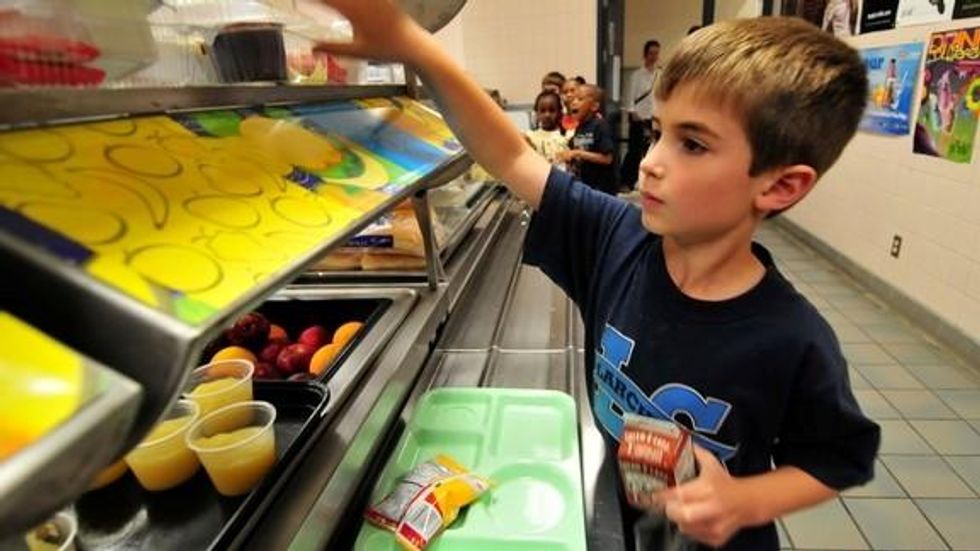I received a phone call Thursday from someone who had seen Demos' Vice President, Heather McGhee, on MSNBC talking about why people need food stamps. The caller stated, "People who are poor do not deserve to have children. I've seen these people with 1,2, 5 children. If you can't afford to feed them, don't have them."
It's easy to dismiss this as the ravings of a lunatic but the truth is that this mentality is all too pervasive, even though it is repulsive both as a matter of public policy and as a moral value.
First, let's start with the basics. The Supplemental Nutrition Assistance Program (SNAP), referred to often as food stamps, doesn't just serve people with children. More than one-quarter of SNAP recipients live in households with seniors or people with disabilities. The recent growth in SNAP spending is because we were in a recession and in a recession, people lose their sources of income. When they lose income, they find it hard to buy things, like food. SNAP actually works exactly as a safety-net program should: It provides assistance to people who are on the brink and prevents them from falling over the edge.
Second, contrary to the hysteria around it, there is very little fraud or mismanagement of SNAP benefits. In fact, SNAP has one of the most rigorous quality control systems of any public benefit program. As for fraud, as Matt Bruenig wrote, it's not something we should worry about. Despite this, people refuse to let go of the image of the Cadillac Welfare Queen in all her racially tinged glory. There is an ugly undercurrent of racism in much of the misinformation and fear-mongering around public benefits.
But, this caller is not interested in the facts of the situation. He embraced what is really at the heart of the SNAP fight and all public benefit fights: poor people do not deserve anything. They are poor because they did something wrong, are irresponsible, lazy, get on welfare and then start popping out babies etc. You hear this a lot when people talk about "personal responsibility." There is a reason why people are poor and it's not systemic, it's the fault of the person.
This kind of mentality is comforting because it doesn't question the validity of what has come to be the essence of America: if you work hard enough, you can make it. The implicit counter is "If you don't make it, you didn't work hard enough." Except people are working hard, in fact harder than ever, and still can't make ends meet. Worker productivity has steadily increased while wages have stagnated and corporate profits have exploded.
In our current economy, you can work more than one job and still not make ends meet. Just ask McDonald's, the giant corporation that counsels its employees to have more than one job and, funny enough, to apply for food stamps to make ends meet. McDonald's made $5.5 billion in profit in 2012, more than enough to pay their workers a living wage. Our economic system takes the benefits of the work of many to enrich the few.
As Demos' Senior Fellow, Sasha Abramsky, who wrote, The American Way of Poverty, states:
50 million Americans, nearly, are now so impoverished that they cannot feed themselves without government assistance. It's the single greatest commonly shared story in contemporary America. It's the experience of economic insecurity.
The greatest commonly shared story in this country is economic insecurity. If you think poor people don't deserve to have children, the problem is not SNAP or the people that rely on it to survive. The problem is you.

 I received a phone call Thursday from someone who had seen Demos' Vice President, Heather McGhee, on MSNBC talking about why people need food stamps.
I received a phone call Thursday from someone who had seen Demos' Vice President, Heather McGhee, on MSNBC talking about why people need food stamps.